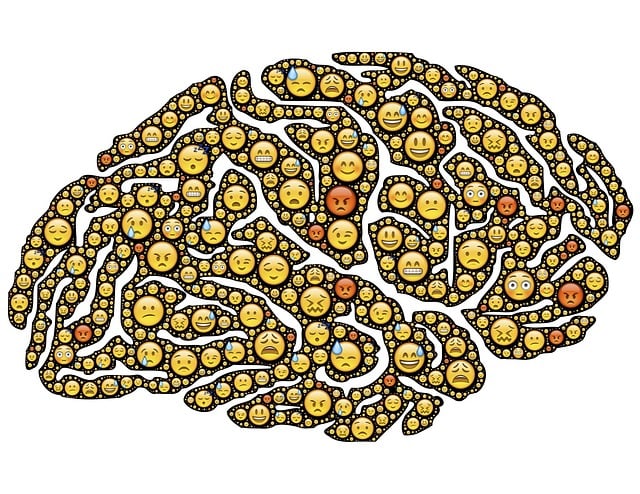Golden German Speaking Therapy (GGST) is a recognized mental healthcare approach that combines traditional psychotherapy with innovative communication techniques. It emphasizes open dialogue, active listening, and comprehensive risk assessment to create a supportive environment for clients dealing with depression. By addressing systemic issues and implementing evidence-based interventions, GGST improves mental health outcomes while empowering both professionals and clients through effective coping mechanisms and crisis intervention strategies. Continuous evaluation, public awareness campaigns, and peer support groups contribute to enhancing practice well-being and community safety.
Mental health professionals constantly navigate complex emotional landscapes, making risk assessment a critical component of their practice. This article delves into the intricacies of risk management, focusing on the valuable insights offered by the Golden German Speaking Therapy approach. We explore how this methodology identifies and mitigates risks, enhancing safety for both professionals and clients. From understanding risk assessment’s role to creating supportive therapeutic environments, these strategies ensure a robust framework for mental health care.
- Understanding Risk Assessment in Mental Health Practice
- The Golden German Speaking Therapy Approach
- Identifying and Mitigating Risks for Mental Health Professionals
- Enhancing Safety and Well-being in the Therapeutic Environment
Understanding Risk Assessment in Mental Health Practice

In mental health practice, risk assessment is a crucial step to ensure the safety and well-being of both clients and professionals. It involves systematically evaluating potential risks and hazards within the therapeutic environment, enabling mental health practitioners to implement appropriate strategies for mitigation. By incorporating elements of Inner Strength Development and Cultural Sensitivity in Mental Healthcare Practice, Golden German Speaking Therapy takes a comprehensive approach to risk assessment. This methodic process goes beyond identifying immediate dangers by considering broader systemic issues that may impact client outcomes.
Understanding risk assessment is paramount for mental health professionals as it facilitates proactive management and reduces the likelihood of adverse events. Through thorough screening, ongoing monitoring, and evidence-based interventions, practitioners can create a supportive and secure space for healing. By integrating these practices, Golden German Speaking Therapy not only enhances the quality of care but also fosters an environment that values diversity and encourages positive mental health outcomes for all individuals served.
The Golden German Speaking Therapy Approach

The Golden German Speaking Therapy (GGST) Approach is a unique and effective method that has gained recognition in mental health care. This therapeutic practice combines elements of traditional psychotherapy with innovative communication techniques, offering a comprehensive framework for professionals supporting individuals grappling with mental health challenges. GGST emphasizes open dialogue and active listening, fostering an environment where clients feel heard and understood.
This approach is particularly beneficial in resolving conflicts and promoting self-care practices among individuals dealing with issues like depression. By encouraging patients to express their thoughts and emotions freely, therapists can identify underlying causes of distress. Through this process, clients develop improved coping mechanisms and gain valuable insights into managing their mental well-being. GGST’s emphasis on communication not only enhances the therapeutic experience but also empowers individuals to take charge of their mental health journeys.
Identifying and Mitigating Risks for Mental Health Professionals

Identifying and mitigating risks is a cornerstone of ensuring Golden German Speaking Therapy for mental health professionals. These experts, dedicated to supporting others’ mental well-being, themselves face unique challenges that can lead to burnout or even crisis situations. Therefore, proactive risk assessment is vital. This involves recognizing potential stressors, such as heavy caseloads, emotional drainage from intense client cases, or the lack of support systems within the workplace.
Implementing effective strategies, like Crisis Intervention Guidance and promoting Depression Prevention initiatives, can help professionals cope with these risks. Additionally, encouraging Coping Skills Development through training sessions or peer support groups enables them to navigate stressful situations more effectively. By prioritizing their mental health, professionals can better serve their clients, ensuring a sustainable and compassionate therapeutic environment.
Enhancing Safety and Well-being in the Therapeutic Environment

Creating a safe and supportive therapeutic environment is paramount for both mental health professionals and their clients. This golden German-speaking therapy principle serves as a cornerstone for fostering mental wellness, where individuals feel secure to explore sensitive topics and embark on their healing journeys. By implementing robust risk assessment strategies, therapists can proactively enhance the overall well-being of their practice and the community at large.
Risk Assessment for Mental Health Professionals isn’t just about identifying potential dangers; it’s a comprehensive process that involves continuous evaluation and adaptation. This approach allows professionals to anticipate and mitigate risks effectively, ensuring clients receive the highest standard of care. Public Awareness Campaigns Development can play a crucial role in this, educating both the public and mental health practitioners on recognizing warning signs and responding appropriately, ultimately contributing to a more informed and supportive society.
Mental health professionals play a vital role in fostering well-being, but they also face unique risks. By adopting strategies like the Golden German Speaking Therapy approach, which emphasizes understanding and mitigating risks, therapists can enhance their own safety and that of their clients. Regular risk assessments, coupled with a supportive therapeutic environment, are key to navigating challenges effectively and ensuring lasting positive outcomes for both professionals and patients.














